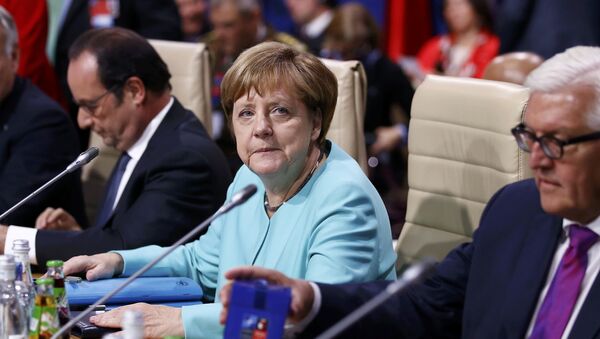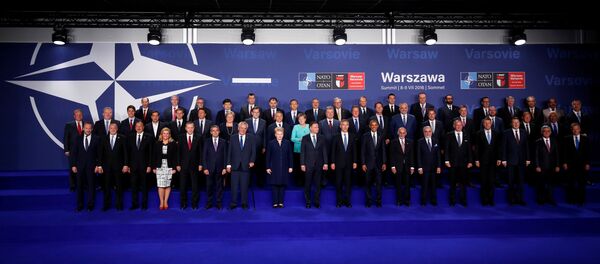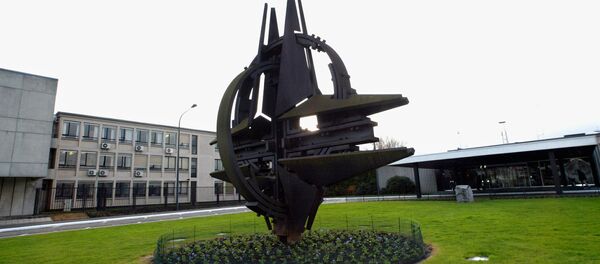WASHINGTON (Sputnik) — Executive Intelligence Review editor Jeff Steinberg told Sputnik that the really dramatic issues discussed at the NATO summit were the priorities addressed "in the hallways."
"They were Brexit [and] the splits growing in Europe over relations with NATO," Steinberg stated.
Alliance leaders also privately expressed concern among themselves over the threat of an overall financial crisis jeopardizing the very survival of the European Union, and, by extension, even that of NATO itself, Steinberg observed.
At the summit, "German Foreign Minister Frank-Walter Steinmeier was the punching bag for hardliners, who accused him of crossing the line by calling for normalization of relations with Russia," Steinberg noted.
However, Steinmeier was not isolated in his concern, Steinberg pointed out.
"French President [Francois] Hollande arrived in Warsaw and immediately publicly said that Russia is neither an enemy nor a threat," he recalled.
Former NATO Defense Committee Chairman and former German Air Force and German armed forces chief of staff Gen. Harald Kujat was also outspoken in his opposition to NATO escalation and confrontation against Russia at the summit, Steinberg continued.
"Kujat told German media that Russia should be viewed as a friend and even an ally. [Russian President Vladimir] Putin, he said, should have been invited to Warsaw," Steinberg remarked.
The decisions to send four Western military battalions into Eastern European NATO member states and other confrontational moves approved in Warsaw had actually been choreographed by Washington well in advance of the summit, Steinberg recollected.
"The deployment of battalions to the Baltics and Poland was endorsed by the NATO defense ministers, weeks before Warsaw," he added.
The Warsaw summit also reflected the efforts to invent new enemies such as Russia to justify the alliance’s survival, University of Arizona History Professor David Gibbs maintained.
"NATO really lost its function with the end of the Cold War and the demise of the Soviet Union. However, there is a large range of vested interests associated with NATO on both sides of the Atlantic, which have lobbied with great success to find NATO a new mission," Gibbs noted.
Alliance leaders wanted to find new enemies that NATO could defend against, as a replacement for the Soviet Union, Gibbs pointed out.
"It would appear from recent events that NATO boosters are seeking to establish post-Soviet Russia as the new enemy and as the new justification for NATO's continued existence," he cautioned.
The Warsaw summit also rubber-stamped the US deployment of Patriot missile interceptor batteries and radars in Poland and Romania, allegedly against Iran, but of potential use against Russia.



